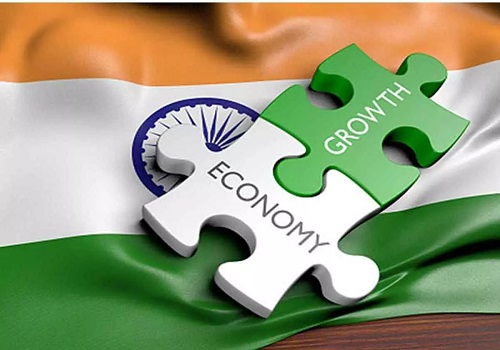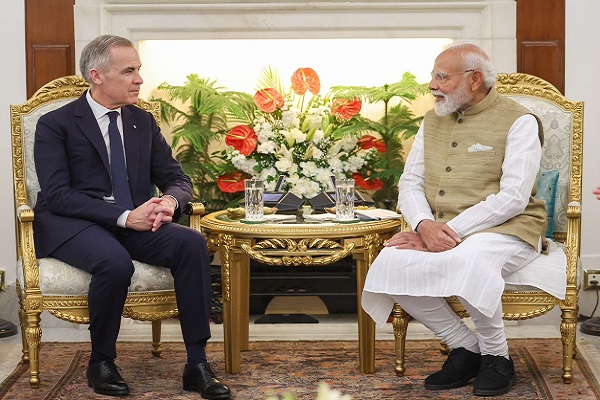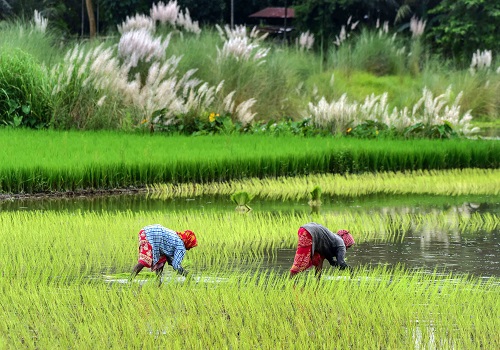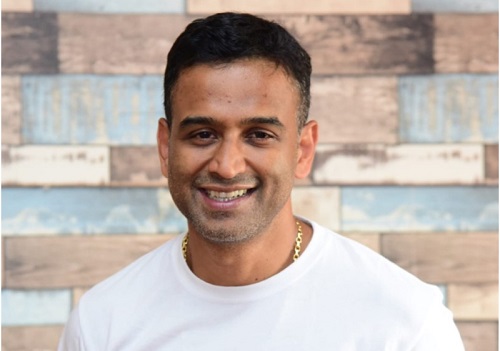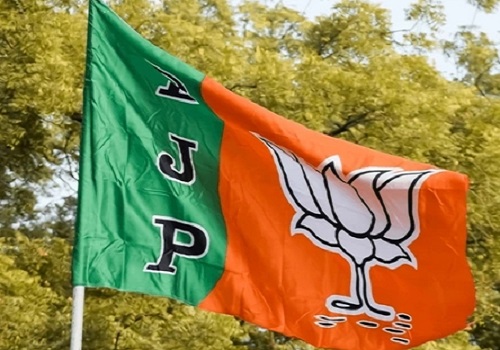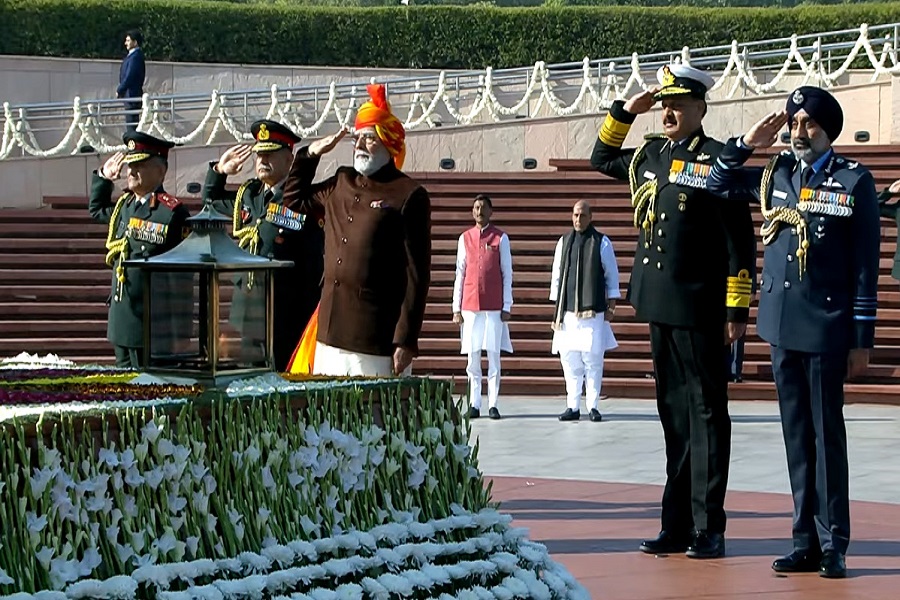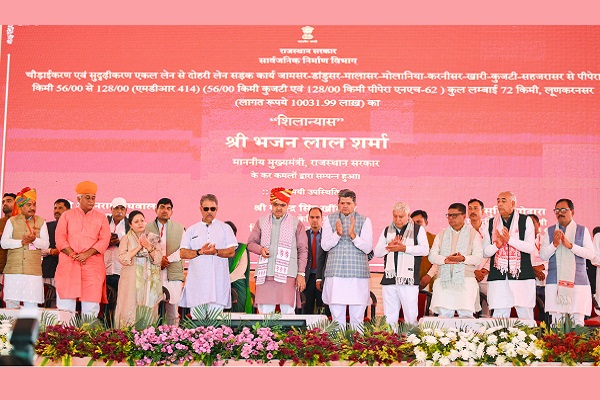11 years of PM Jan Dhan: Nagpur beneficiaries count benefits like zero balance; thank government

The Pradhan Mantri Jan Dhan Yojana (PMJDY), India’s largest financial inclusion initiative, on Thursday completed 11 years since its launch by the Centre in 2014.
Introduced by Prime Minister Narendra Modi, the scheme has transformed the banking landscape of the country, enabling millions of poor, women, farmers, and marginalised communities to access formal financial services for the first time.
Nagpur in Maharashtra is among the regions where the scheme has touched lives profoundly.
Beneficiaries here say the facility of opening zero-balance accounts has reduced their dependence on informal financial sources and has helped them access government benefits seamlessly.
Through Direct Benefit Transfer (DBT), welfare funds now flow directly into their accounts, ensuring transparency and efficiency.
Sangita, a beneficiary spoke to IANS and recounted how the scheme changed her financial journey.
“I am a housewife and also run a laundry business. Earlier, depositing and withdrawing money from other banks was a struggle. But after opening my account in SBI under this scheme, things became easy. I even received financial support during COVID-19 directly in this account. Earlier, banks charged several service fees, but here, everything is free. The process is smooth, and work gets done quickly. I thank Prime Minister Modi for this scheme,” she said.
For Deepak Gaur, another beneficiary, the benefits of Jan Dhan extended beyond banking.
“I heard about the scheme during a camp and immediately opened my account. Apart from banking services, I also got insurance coverage, which is a big help for people like us. This account has given me security and convenience. I thank PM Modi for this initiative,” he said.
Khushali, a young beneficiary, appreciated the hassle-free process.
“My parents had opened accounts here, and I too faced no difficulties. It was free of cost, with no hidden charges, and my money remains safe. That assurance itself is a big relief,” she said.
Bank operators have also played a key role in expanding the reach of the scheme.
Kundli Kishor Das Maske, an operator associated with PMJDY, shared his experience: “So far, I have helped open more than 15,000 bank accounts under this scheme. It is my responsibility to ensure that people benefit from it. Along with zero-balance accounts, we also provide insurance benefits. Initially, the limit for deposits was Rs 10,000, but now the government has increased it to Rs 30,000 for deposits and withdrawals. This has further encouraged people to use banking services actively.”
In August 2014, this vision began to take shape. Launched as the National Mission for Financial Inclusion, the PMJDY aimed to provide every unbanked adult in India with a bank account, a financial identity, and access to essential services such as credit, insurance, and pensions.
Guided by the mission of banking the unbanked, securing the unsecured, funding the unfunded, serving the unserved and underserved, PMJDY has grown to become the largest financial inclusion initiative in the world.
The achievements of PMJDY have also been recognised by the Guinness World Records. It certified the "Most bank accounts opened in one week as part of a financial inclusion campaign is 18,096,130," a feat accomplished by the Department of Financial Services, Government of India.
As the scheme turned 11-years-old on August 28 this year, its impact is visible nationwide — from the rise in rural account ownership to the surge in digital transactions— signaling a transformed financial landscape.
PMJDY offers a comprehensive range of benefits tailored to meet the diverse financial needs of individuals, fostering both security and empowerment.
These include zero-balance accounts, RuPay debit cards with built-in insurance, overdraft options, and access to services through Business Correspondents (BCs) in remote locations.
The initiative supports inclusive economic growth and social equity, while linking beneficiaries to other government initiatives for enhanced financial stability.
Basic Savings Bank Deposit Account (BSBDA): Any Indian citizen eligible to open a standard bank account can open a BSBDA. This account type does not require maintaining a minimum balance. Transactions can be done through bank branches, ATMs, and BCs, with withdrawals limited to a maximum of four per month.
Small Account/Chota Khata: For individuals without formal legal documents, small accounts can be opened. These are valid for 12 months and may be extended by another 12 months if proof of application for an Officially Valid Document is submitted within the first year.
RuPay Debit Card with Inbuilt Accident Insurance: All beneficiaries receive a free RuPay debit card with accident insurance coverage of Rs 2 lakh (Rs 1 lakh for accounts opened before August 28, 2018).
Overdraft Facility: Beneficiaries can avail overdraft facilities of up to Rs 10,000.
Business Correspondents (BCs)/Bank Mitras: Retail agents engaged by banks to offer banking services beyond branch/ATM locations, particularly in rural areas. BCs/Bank Mitras assist residents with savings, deposits, withdrawals, and mini-statements, ensuring last-mile delivery of banking services.
Eligibility for Additional Government Schemes: PMJDY accounts are eligible for Direct Benefit Transfer (DBT), Pradhan Mantri Jeevan Jyoti Bima Yojana (PMJJBY), Pradhan Mantri Suraksha Bima Yojana (PMSBY), Atal Pension Yojana (APY), and the Micro Units Development & Refinance Agency Bank (MUDRA) scheme.
Since its inception, PMJDY accounts have grown from 14.72 crore in 2015 to over 56.16 crore by August 2025. Of these, approximately 67 per cent were opened in rural and semi-urban areas, while 33 per cent were opened in urban and metro regions.
The scheme has also been a significant step towards gender equality, with 56 per cent of Jan Dhan accounts belonging to women. This highlights the scheme’s crucial role in promoting financial inclusion for women, especially those working in the unorganized sector. Many have benefited from access to social security and credit schemes such as PMJJBY, PMSBY, and APY.
Total deposits in PMJDY accounts have seen an impressive rise, increasing from Rs 15,670 crore in March 2015 to Rs 2,67,755 crore as of August 2025. This growth reflects the increasing trust of beneficiaries in the formal banking system and their active participation in financial activities.
As India marks 11 years of PMJDY, it is evident that the initiative has transformed the country’s financial ecosystem. Launched with the promise of bringing the unbanked into the formal banking system, PMJDY has established a robust framework for inclusive economic development.
With over 56 crore accounts opened, including nearly 30 crore women beneficiaries, along with sizable deposits and extensive distribution of RuPay debit cards, the scheme has reached even the most remote regions. It has uplifted millions, particularly those from underprivileged backgrounds, giving them access to financial tools that were previously out of reach.













